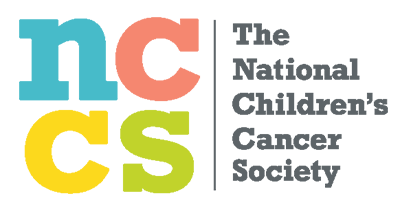
years awarded
Often, when asked what survivorship is, people assume surviving cancer is the culmination of survivorship – the ultimate goal. While this is absolutely the first and foremost priority, I do not believe survivorship ends there. Survivorship has taken me far beyond my own experience in battling cancer and its aftereffects both in actions I never thought I could do and to a person I never thought I could become.
Survivorship is not restricted to its mere definition of being a survivor; it’s hard to encapsulate all that it truly is. But I know exactly what it is not: survivorship is not existing inside of your own sphere of influence where only immediate friends and family know of your journey. I am not saying every childhood cancer survivor should shout their story from a platform; every survivor is different. I am saying that personally, cancer has changed me.
Although I experienced it at a very young age, knowing what I endured and that others have gone through much of the same and in many cases much worse creates a desire in me to use my story for a greater good.
Survivorship does not mean attending a Relay for Life event – which I do – and daily living in inattention toward your experience. It means explicating how it has strengthened me, matured me, and impassioned me in and for life itself. I have become a more aware and relational person, for I understand that everyone must endure hardship wrought from unwarranted circumstances.
But the greatest facet of survivorship is also the most impactful and means the most to me extending beyond self to reach and uplift others as a symbol and mouthpiece of hope.
My most profound memory of this was on a summer day on the streets of downtown Brooklyn, New York. I was working one of two prayer stations which my small Kentucky church was hosting when an exhausted-looking lady and her small son approached. It was soon discovered that her son had leukemia. No words were needed; after she learned that I, too, had fought and defeated leukemia as a young child, the walking testimony of God’s healing of me and my decision to thus share that story as hope for others was enough to start the flow of overwhelmed, grateful, and hopeful tears from the mother’s eyes. I have never seen this lady or her son since that day, but the tangible evidence of the magnitude of this encounter for her was enough to know it was exactly what she needed.
Although this instance was not my first experience in sharing my story, it acted as a catalyst for further action. In local schools, I share my story to soften cavalier attitudes toward cancer research on behalf of the Pennies for Patients program, and I find as many ways as possible to raise money for this cause. I act as a spokesperson and poster child for the Leukemia and Lymphoma Society of Kentucky and Southern Indiana by traveling to surrounding high schools and helping other students to understand the reality of battling leukemia as a child and the importance of the work done by organizations doing research and helping to provide aid for families dealing with this from an actual survivor. This has all been very beneficial to me and to others, and it has taught me how to be a more understanding, patient, and clear communicator; however, I will not stop there.
All of the things that I do are done for a purpose because I believe that helping others understand childhood cancer more fully is worth the effort. The life that I live is a gift; I choose to not to waste the full life that God has given me and the unique perspective with which He has equipped me. As a survivor myself, I see my job is to be an ambassador for those who can’t speak to reach more of those who can help. It is in this way I leave a lasting legacy and make an impact for those like me.
